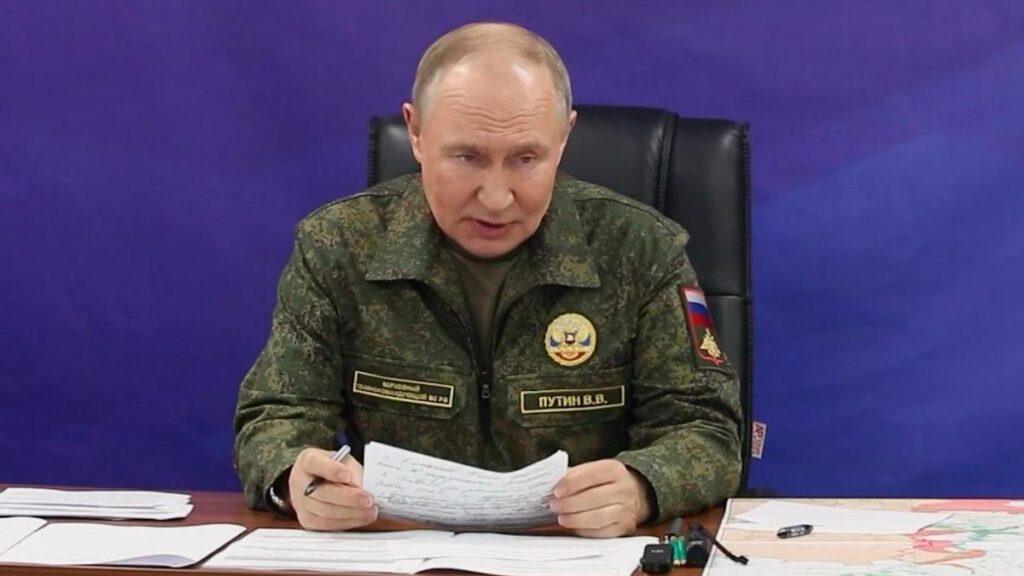
UPDATE: Russia has successfully tested its nuclear-powered Burevestnik cruise missile, with President Vladimir Putin declaring the weapon “invincible” against current and future missile defenses. The test, conducted on October 21, 2023, saw the missile fly an impressive 14,000 km over approximately 15 hours, showcasing its extensive capabilities.
This development sends a powerful message to the West, particularly as tensions continue to escalate over the ongoing war in Ukraine. Putin’s remarks during a meeting with military generals indicate that Russia will not bow to Western pressures, especially with U.S. President Donald Trump adopting a tougher stance on Moscow.
The 9M730 Burevestnik, also known as SSC-X-9 Skyfall by NATO, is touted as having an almost unlimited range and an unpredictable flight path, making it a formidable addition to Russia’s nuclear arsenal. “It is a unique weapon which nobody else in the world has,” Putin stated, dressed in military fatigues at the command point where he announced the missile’s successful test.
Putin emphasized that this test marks the conclusion of the weapon’s crucial testing phase, despite earlier skepticism from Russian specialists regarding its feasibility. He instructed military leaders to prepare for the weapon’s deployment and establish the necessary infrastructure.
The timing of this announcement is significant, coinciding with a nuclear drill conducted last week, further underscoring Russia’s military readiness. Following reports that the Trump administration lifted restrictions on Ukraine’s use of long-range missiles, Putin’s message is clear: Russia remains a formidable global military power, particularly in nuclear capabilities.
“If Russia were attacked, the response would be very serious, if not overwhelming,”
Putin warned, signaling potential consequences for Western nations supporting Ukraine.
In addition to the Burevestnik test, Russian forces are reportedly encircling large numbers of Ukrainian troops in the Donetsk region and advancing in the Kharkiv, Dnipropetrovsk, and Zaporizhzhia areas. Valery Gerasimov, chief of the general staff of Russia’s armed forces, confirmed that the missile’s flight was powered by nuclear energy and reiterated its ability to evade any anti-missile defenses.
Putin’s recent oversight of strategic nuclear forces testing across land, sea, and air reaffirms Russia’s commitment to maintaining a modern and robust nuclear deterrent. “The so-called modernity of our nuclear deterrent forces is at the highest level,” he stated, emphasizing superiority over other nuclear-armed nations.
The White House has not responded to this latest missile test as international scrutiny mounts over Russia’s military actions and the implications for global security. This urgent update highlights the escalating tensions as nations monitor Russia’s aggressive military posture and its potential impact on regional stability.
As the situation develops, observers are urged to stay informed on the latest military advancements and diplomatic responses from the West. What happens next could redefine power dynamics on the global stage.







